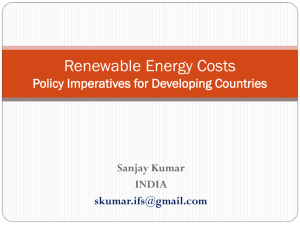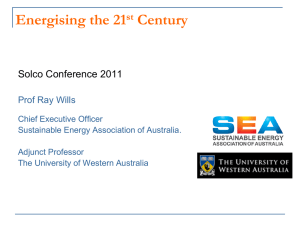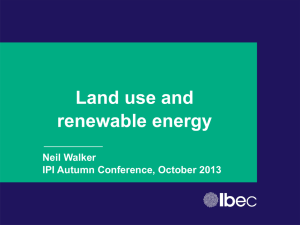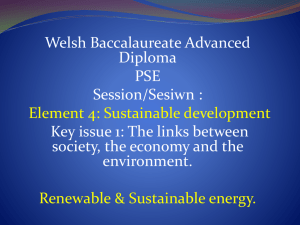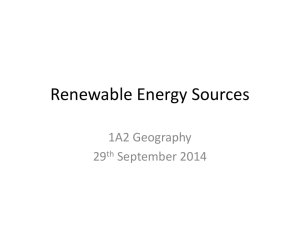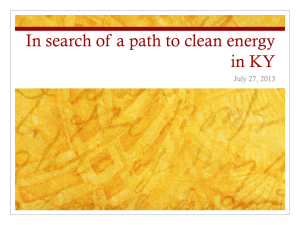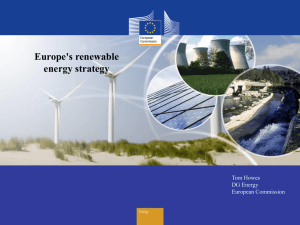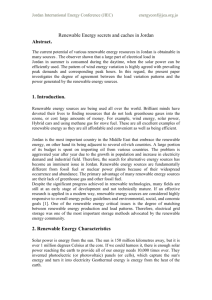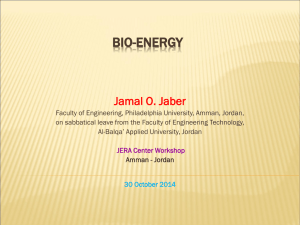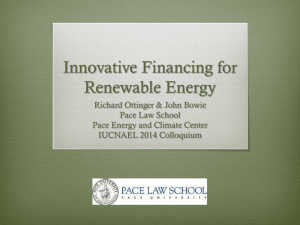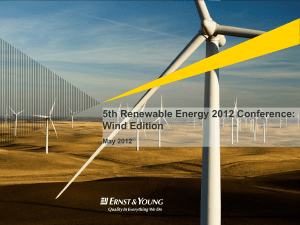Bader Eddin Al-Majali V2
advertisement
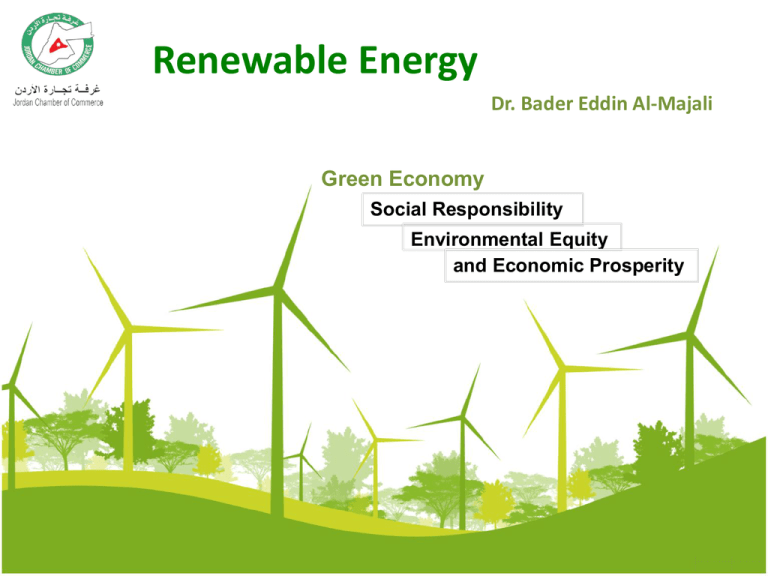
Renewable Energy Dr. Bader Eddin Al-Majali Green Economy Social Responsibility Environmental Equity and Economic Prosperity Introduction Arab region enjoys a rich endowment of renewable energy resources, particularly solar and wind energies. In fact, the region’s conditions are so favorable to electricity production that “a transition to a renewablebased power system is economically more feasible and more attractive than in most other regions of the world” Market Structure Opening the electricity market to private power generation is one of the key pre-conditions for enabling private investments in renewable energy. Although power sector reforms have been initiated in almost all countries, the overall electricity market in the region still remains state-dominated with little participation from the private sector. Policy Framework Almost all Arab countries have shown commitment to renewable energy by adopting long-term technology-specific targets. However, efforts and progress of these countries in meeting their targets vary greatly. Currently there are more than 15 large-scale projects under construction with total capacity exceeding 1,550 MW, which is more than double the current installed capacity in the region. Institutional Capacity Institutional Capacity measures the ability of states to design and formulate renewable energy policies, and most importantly to provide institutional support for deployment of renewable energy projects. More than half the countries in the region have established dedicated agencies to support renewable energy. However, the resources and capacity of these agencies vary greatly. Independent regulators are still rare in the region. Institutional Capacity Well-functioning independent regulators are important for ensuring stable, reliable and transparent management of the power sector. Countries should follow international best practices in establishing independent regulators. Those countries that have established independent regulators and designated agencies for renewables have taken an important step towards building a strong institutional base. Finance and Investment The region overall performs poorly in the Finance and Investment category, especially in the field of private investment in renewable energy. Although seven countries have identified over 5,000 MW of new generation for private development, to this day among the 13 countries, only Morocco has been able to attract private investment in renewables. Solar Radiation in the Arab region Jordan results according to RECEEE Average Country RCREEE – Regional Center for Renewable Energy & Energy Efficiency Facts about Jordan • Jordan ranks second after Morocco in sustainable energy competitiveness in the Arab region. • It is one of the few countries in the region that has provided a statutory guarantee of access for renewable energy to the grid. Facts about Jordan • Jordan has made substantial progress in the past years by adopting a quite progressive supporting policy framework for renewable energy: it introduced the Law on Renewable Energy and Energy Efficiency, feed-in tariffs, preferential purchase prices for net metering, provided a direct proposal submission option and exempted renewables from customs duty and sales tax. What is Next • Jordan should now concentrate efforts on ensuring the functionality of these support mechanisms in order to maintain confidence amongst participants. • Having created favorable conditions for investment, it should now also concentrate on strengthening institutional support to better facilitate deployment of renewable energy projects. • This requires establishing a dedicated agency to promote renewable energy with sufficient resources and competent staff. Jordan Indicators Jordan Indicators T +962 6 5902040 F +962 6 5902051 info@jocc.org.jo www.jocc.org.jo
